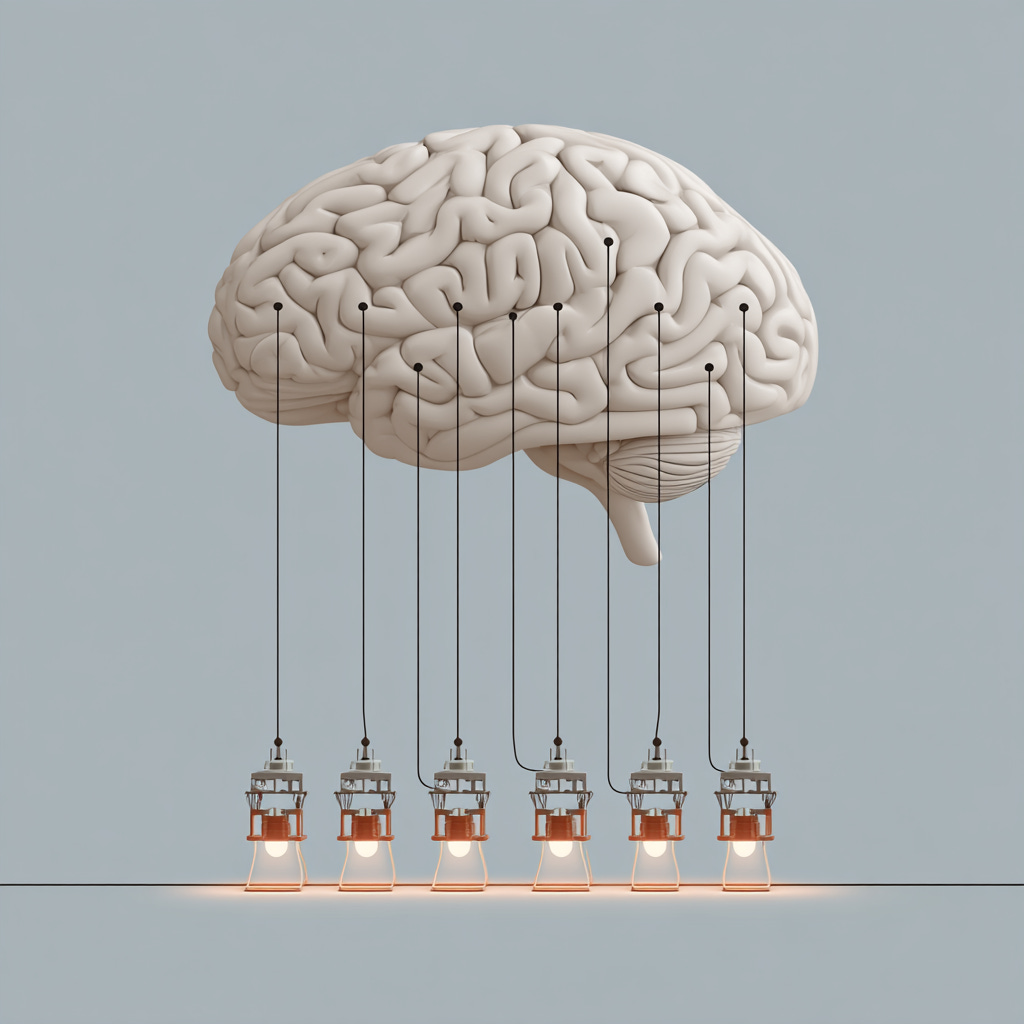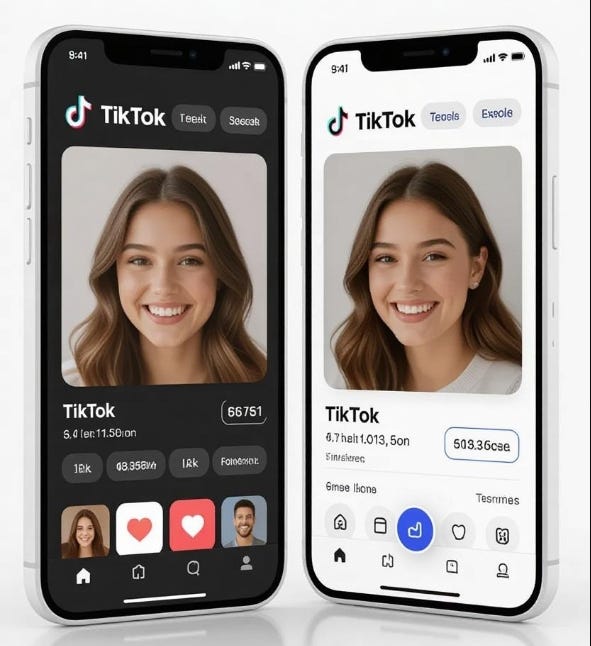The Psychology of Influence
Unlocking the mental shortcuts that drive trust, loyalty, and sales
Build to Thrive delivers strategies, playbooks, trends and tools that help you build smarter, scale your business and stay ahead of the game.
Most people do not say yes because of logic. They say yes because of psychology.
Think about it. You walk into a store and someone hands you a free sample. You had no plan to buy, but now you feel guilty walking away empty-handed. Or you are scrolling online, and a video with a million views suddenly feels more credible than one with only a hundred, even before you press play.
We like to believe our choices are rational. They rarely are.
Robert Cialdini understood this better than anyone. He was a psychologist with a question that would not leave him alone: why do people say yes?
He did not find his answer in a library. Instead, he went into the field. He sold cars, waited tables, joined sales teams. Not for the paycheck, but to observe. To take notes. To capture the small nudges that moved people from hesitation to agreement.
Those years of undercover work became Influence: The Psychology of Persuasion, published in 1984. The book revealed what many of us sense but rarely put into words. Most decisions are not the result of deep analysis. They are guided by shortcuts, six psychological triggers that reliably push us toward yes.
You have already felt them in your own life. And if you are building a business or creating content, you are either using them consciously or being shaped by them unconsciously.
Let’s dive into the six principles and see how they shape choices today.
Reciprocity
Human beings are wired to return favors. Even small gestures can create an outsized sense of obligation. In the 1970s, members of the Hare Krishna movement handed out flowers in airports. Most people did not want the flowers, but once they were accepted, it became uncomfortable to walk away without donating. The gifts were small and often unwanted, yet they drove a dramatic increase in contributions.
That reflex is alive and well in digital life. A creator who publishes a well-designed Notion template, a pack of AI prompts, or a free playbook without asking for anything often sees exponential engagement. The audience feels a natural pull to repay the gift, whether with a follow, a share, or a purchase. Reciprocity is why free resources spread so quickly online. They do not just showcase expertise. They create a cycle of goodwill that keeps compounding.
Authority
People defer to authority, sometimes even against their own better judgment. Stanley Milgram’s obedience experiments made this clear. Participants agreed to deliver what they believed were painful electric shocks simply because the instructions came from a man in a lab coat. The clothing was enough to override hesitation.
Authority works in more subtle ways in the creator economy. A new YouTuber or podcaster with crisp visuals, clear sound, and a consistent posting rhythm is perceived as more trustworthy than a competitor who may have deeper insights but appears disorganized. Presentation signals authority. Professional design, strong voice, and clear structure communicate credibility before the content is even judged. In a crowded digital world, people rely on these shortcuts to decide whom to trust.
Social Proof
When we are uncertain, we look to others for guidance. Social proof is the reason laugh tracks still work in sitcoms. Even when we know the laughter is canned, we find ourselves laughing longer and harder because others appear to be laughing too.
Online, this instinct is magnified. A TikTok with a million views feels more credible than an equally good video with only a hundred. A Substack writer with visible testimonials converts more subscribers than one with none. Reviews, likes, and engagement numbers are not just vanity metrics. They are proof signals. They reassure audiences that others have gone first, and that it is safe to follow. Social proof explains why some creators break through and others do not, even when the difference in quality is minimal.
Commitment and Consistency
Once people say yes to something small, they are more likely to say yes again. Psychologists demonstrated this in a simple experiment. Homeowners who agreed to display a small sticker about safe driving were four times more likely to later accept a large, unattractive lawn sign. The first yes created an inner need to remain consistent.
This principle is everywhere in digital business. Signing up for a free five-day challenge is a small yes. Downloading a low-cost ebook is another. Each small action reinforces a new identity: I am the type of person who invests in this. That makes it easier to say yes again to a higher ticket program or service. Consistency is less about rational choice and more about staying aligned with who we have already declared ourselves to be. For creators and founders, designing these small yeses can be the difference between stagnation and momentum.
Liking
We are more likely to say yes to people we like. It is a simple principle, yet it often outweighs logic. The success of Tupperware parties in the 1950s was not about plastic bowls. It was about relationships. Friends bought from friends because they wanted to support someone they cared about.
This dynamic drives much of today’s creator economy. Many people support Substack writers or Patreon creators not only for the exclusive content, but because they feel a bond with the person. They like their story, their tone, their personality. They want them to succeed. In a digital world where anyone can post anything, liking is a filter. It is the difference between content that gets ignored and content that builds communities.
Scarcity
When something feels rare, it feels valuable. Scarcity is one of the oldest levers of persuasion, and it continues to work. Disney built entire marketing campaigns around the “vault,” retiring films for years before re-releasing them in limited runs. Families rushed to buy VHS tapes before they disappeared again. The movies were the same, but scarcity changed how people valued them.
Scarcity is just as powerful online. Cohort-based courses with limited enrollment sell out faster than evergreen offerings. Countdown timers on product launches increase conversions. Even when a product could technically be offered endlessly, limiting access changes behavior. Scarcity drives urgency, and urgency pushes people to act now instead of later. In a digital environment overflowing with abundance, the rare thing commands our attention.
Closing Reflection
Cialdini’s six principles explain why people say yes. They reveal the shortcuts our minds take, the levers that move us from hesitation to action. But influence is only the beginning.
The harder work begins after the yes. Delivering on the promise.
And speaking of reciprocity, here is a free GPT I built to help you turn annual goals into a 90-day execution plan. It will give you a taste of how psychology and systems work hand in hand.
Want to become a paid subscriber? (104 and growing…)
Here is what you will get:
Access to my growing arsenal of tools, apps, tactics and prompts to help your business grow smarter. More info here
Deep dives, exclusive content and unlock most popular articles.
Help with your business challenge and join the chat community.
Ways I can help you:
Critical thinking on your business challenge
Strategic alignment, goal setting and execution
Using AI to help you save time and become more productive
Here is a free GPT I built to help you turn annual goals into a 90-day execution plan. It will give you a taste of how psychology and systems work hand in hand.
I use this space to share ideas and voices that help founders and creators think more clearly, act more intentionally, and build systems that last.
My work focuses on helping entrepreneurs bring order to growth and clarity to complexity, moving from chaos to control, and from control to sustainable growth.
If you are struggling with growing your company, here are some ways I can help:
Setup a FREE 20 minute call with me directly to talk about possibilities Click Here
Visit my page for more information about the program Click Here
Or message me











Very interesting post! Always fascinating to see the overlaps to behavioral design in products, and what are universal human principles. Kahneman won a Nobel
Prize years ago for disproving rational decision making theories, yet so many approaches still rely on them today! Thanks for the thought provoking read, Juan.
Great book, thanks for the write up